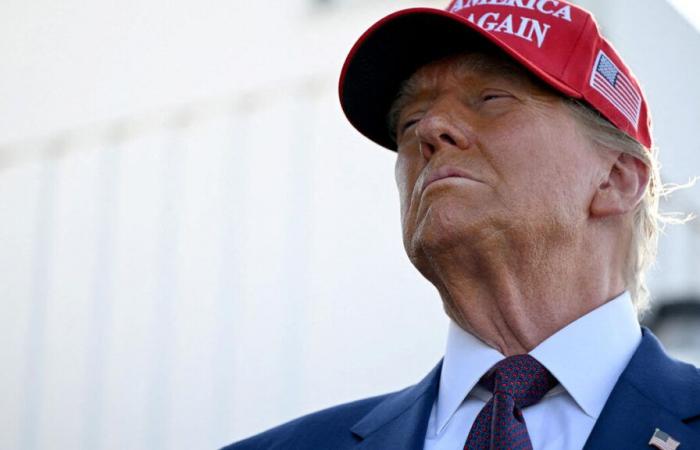
“On January 20, in one of my many first executive orders, I will sign all necessary documents to impose 25% tariffs on ALL products entering the United States on Mexico and Canada,” wrote Donald Trump , the president-elect in a publication on his Truth Social network. “This tax will remain in effect until drugs, especially fentanyl, and all illegal immigrants stop this invasion of our country!” “, he added.
In a separate post, he also announced an increase in customs taxes of 10%, which is added to those already existing and to those additional that he could still decide, on “all the numerous products arriving from China to the United States. United.”
He explained that he had often raised the problem of the influx of drugs, particularly fentanyl, one of the main culprits of the opioid crisis in the United States, with Chinese leaders who promised to punish him severely, “until the death penalty”, “traffickers”. But according to Trump, “they never got to the bottom of things.”
Towards new trade wars
To justify this protectionist implementation, Donald Trump will put forward national security reasons to deviate from the rules set by the World Trade Organization (WTO). As a general rule, countries refrain from using this exception as a regular trade policy tool. But Trump, who never hid his game during the campaign in the United States, is not afraid of relaunching trade wars, particularly with China.
Concerning China, Donald Trump has promised customs duties of up to 60% for certain products, or even 200% on imports of vehicles assembled in Mexico. He also wants to reintroduce customs duties of 10 to 20% on all products entering the United States.
Already during his first mandate, he had justified this policy by the trade deficit between the two countries and Chinese commercial practices that he considered unfair, also accusing Beijing of theft of intellectual property. China responded with customs duties with harmful consequences for American farmers in particular. Customs duties on Chinese products which, incidentally, have been maintained by the Biden administration.
“No one will win a trade war,” Chinese diplomacy warned on Tuesday following the statements of the American president-elect. “China believes that trade and economic cooperation between China and the United States is mutually beneficial in nature,” said a spokesperson, Liu Pengyu.
In the evening, Justin Trudeau's government for its part considered that the relationship between the two countries was “balanced and mutually beneficial, especially for American workers”. Before recalling as a warning that Canada was “essential for the energy supply” of the United States. In the country, where 75% of exports go to the United States, the news sent a shock wave. Quebec Prime Minister François Legault said this announcement represented “a huge risk” for the Canadian economy. His British Columbia counterpart, David Eby, said that “Ottawa must respond firmly.”
The European Union has already said it is “ready to react”
For its part, Mexico “has no reason for concern”, tried to reassure President Claudia Sheinbaum the day after the American election. The three countries have been linked for thirty years by a free trade agreement, renegotiated under pressure from Donald Trump during his first term. The problem is that this agreement must be renegotiated in 2026. By displaying a firm position, Trump's strategy is to make his interlocutors bend before even starting discussions while knowing that Mexico and Canada are ultra -dependent on the United States and the negotiating margins are low.
The European Union has already said it is “ready to react” in the event of new trade tensions. Except that Europe has become more and more dependent on the United States for its hydrocarbon supplies since the taps were closed with Russia with the war in Ukraine. A Damocles sword which will de facto limit the possible actions of the old continent… In addition, certain industries in Europe such as luxury or even spirits risk paying the price of an excessively pronounced increase in customs duties in the United States while the Chinese market is much less buoyant for its brands.
Obviously, the closure of borders should primarily benefit American companies which will be tempted to relocate their production to take advantage of the opportunities offered by the domestic market in the United States. However, with only one downside. This protectionist policy can create a significant inflationary risk which could cause consumption to fall. To deal with this, the Federal Reserve in the United States could then limit the fall in interest rates.





